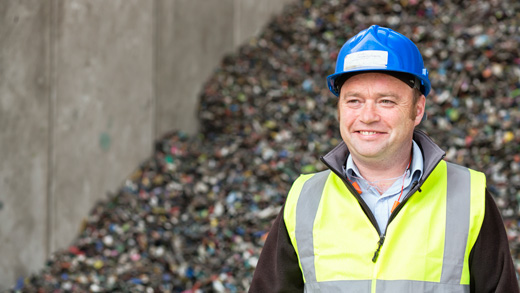Five minutes with…Peter Mackrell, MBA UK’s Quality Control Manager
Could you describe your role and responsibilities at MBA Polymers?
I have overall responsibility for quality assurance here at Worksop. I promote and implement systems and processes to guarantee that we satisfy our stakeholders’ needs. That could be in terms of regulatory compliance or material specification, for example. I’m involved right from the approval of suppliers through to product testing and the despatch of finished goods. I also oversee our product development efforts. This includes continuously improving the quality of our products and working with customers to identify or develop products that suit their applications.
How does MBA work with its customers to tailor the characteristics of their products?
We collaborate with customers to understand how they need the product to perform and how they use the plastic in their manufacturing process. We can then develop a solution that best fits their business and run laboratory tests to confirm that we have met their needs effectively.
Could you share an example?
We’re currently working with a large packaging manufacturer on incorporating their re-grind into a compound product that we’ve created for them. We modified the material to meet their requirements and used our thermo-analytical test equipment to confirm that we had delivered the most cost effective solution. We also collaborated with a specialist to achieve an exact colour match.
What plastics recycling challenges do you face and how are you working to overcome them?
Our major challenge is to remove non-target materials and purify the individual target plastics we recycle. We do this in a way that uses the most plastic possible and maximises the benefits to the customer at minimum cost. This means a technical focus on yield, additive cost efficacy and optimisation of material properties.
What do you think of Mazda’s move to introduce bio-plastic for exterior car parts?
It’s interesting. We’re also exploring how vehicle manufacturers can reduce the weight of vehicle parts to achieve CO2 emission targets – through efficient fillers rather than bio-plastics. According to Mazda, the energy requirements for the production of bioplastics are 30% lower than those of virgin plastics. Recovering plastics at MBA Polymers uses 80% less energy when compared to making the equivalent virgin plastic polymer.
There’s also a question mark over how sustainable it to use agricultural land to cultivate feedstock for bio-plastics. Unless the feedstock is sourced as a by-product of food production, it will compete with the food and fibre crops to feed and clothe the world’s growing population.

